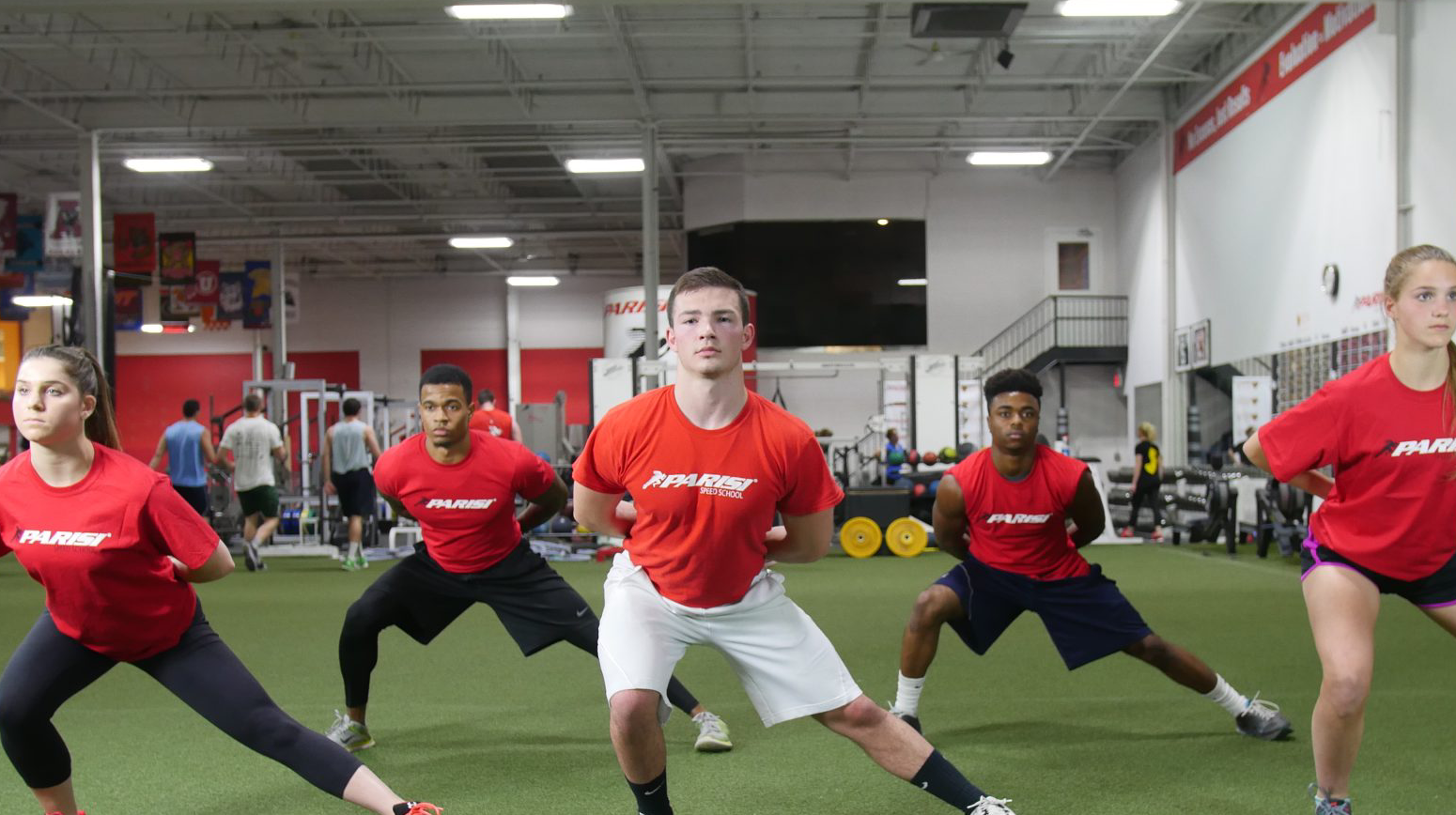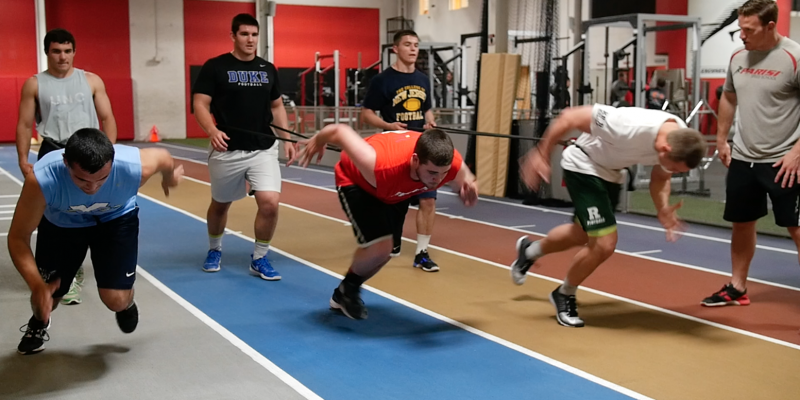By Bill Parisi, Founder Parisi Speed School
Over-training. We all know too much of anything is not good. The same holds true for exercise, especially weight training. Throughout my 25 years of being a professional trainer, I have seen a dramatic increase in the number of athletes and fitness enthusiasts who over train or simply do not get enough recovery. Keeping things in prospective, the overall number of overtrained individuals is still only a fraction, compared to all exercisers.
The first challenge people need to overcome with training is that too many people think that getting sore is a good thing. I hear it all the time… “That workout was great yesterday, my arms are killing me today.” Although some muscle soreness may occur in the first few days of a beginner’s routine, seasoned exercisers should not experience excessive soreness a day or two after workouts. This is an immediate sign that you may have overtrained.
Overtraining is a consequence of imbalance between stress and adaptability of the body. The body’s goal is to try and maintain a state of homeostasis, a physiological state of complete balance. Heart rate, blood pressure, blood sugar and hormone levels are all measures of the body’s homeostatic state. As our physiological state changes, as it does with exercise, the body’s goal is to bring itself back to a state of homeostasis.
Stress in the body manifests itself in two different ways: physical stress and mental stress. When you workout you are putting a stress on your body. This is a healthy type of stress if you recover properly. Mental stress is when you are late for an appointment while sitting in traffic. This is obviously a bad type of stress. The key to your well-being is your ability to adopt to all these different types of stresses.
General Overtraining vs. Local Overtraining
When it comes to overtraining, there are two different types that you need to make yourself aware of: general and local.
General overtraining affects the whole body and results in the body’s inability to return to a normal range of homeostasis.
Local overtraining affects a specific body part such as the arms, chest, shoulders, hamstrings, etc. Normal recovery from workouts should take anywhere from 24 to 48 hours.
Top 10 Classic Signs of Overtraining
- Increased sleep requirements
- Tendency to tire easily
- Poor motivation, inner unease
- Increased recovery time from workouts
- Impaired coordination
- Elevated resting pulse
- Reduced appetite
- Pronounced muscle soreness
- Slight increase in blood pressure
- Tendency to have headaches, colds, fever blisters; prolonged recuperation
The Importance of Proper Recovery
The best way to avoid overtraining is to understand proper recovery. It is ok to train intensely. Most people simply do not put enough emphasis on the recovery process 1-2 days after workouts. Proper sleep, nutrition, and time between workouts are crucial components for the body to adapt to the challenges you have placed on it.
Adults should get at least 6 hours of good uninterrupted sleep per night and up to 8 hours if you are a serious exerciser. Children should get closer 10 hours of sleep. What most people do not understand is that your body repairs itself from stress, “good and bad,” during sleep. I tell this to the athletes we train all the time. Your body is actually building itself (protein synthesis) back up during good, sound sleep. This is when natural Human Growth Hormone (HGH) is secreted at it highest levels and lean muscle tissue is actually built back up.
Prioritize Proper Nutrition
Everyone knows how important proper nutrition is. Most people don’t realize the tremendous benefit a protein-carbohydrate dense meal or a shake can do for recovery within 90 minutes, post-workout. This 90-minute window is important and is the max you should go after a workout without food. The goal is to replenish the simple sugars and proteins your body has just depleted and broken down. The muscle has been broken down from the workout, which has put your body in a catabolic state (broken down).
Once your workout is complete, the goal is to reverse this catabolic state the body is in into an anabolic state (building back up). If you do not feed your muscle soon after a workout, your body will stay in the catabolic state and continue to break down and feed off its own muscle tissue for energy. This is a counter productive body reaction and can be avoided if a good meal or shake is ingested within 90 minutes after workouts.
Sport Massage
Another form of recovery is Sport Message. It is ideal for local muscular overtraining. Massage promotes fresh blood flow into the muscle and forces waste products out of the muscle. This will aid recovery along with drinking lots of water.
No Brain, No Gain
Read your body and sense how you are feeling. If you are tired and have less energy before your workout and you worked out hard the last few days, make your next workout an easy one or just take the day off. Remember the old motto “No Pain, No Gain” is not as accurate as “No Brian, No Gain.” So train smart and you will get stronger and continue to make “Gains” with your routine.


 Fall In Love With Training
Fall In Love With Training
Great article, I totally agree. I have been telling my friends to workout less and listen to their bodies, and now telling the same to my clients.